Five years since the EuroMaidan Revolution ousted Kremlin-backed President Viktor Yanukovych, the failure of Ukraine’s anti-corruption reforms is becoming plain to see, for Ukrainians and the country’s foreign friends alike.
Marie Yovanovitch, the U.S. ambassador to Ukraine, on March 5 made her harshest statement on Ukraine so far, criticizing the country’s failure to reform its law enforcement and calling for radical change.
She criticized flaws in the nation’s judicial reforms and the cancellation of the illicit enrichment law in late February. Yovanovitch also emphasized the need to replace discredited Anti-Corruption Prosecutor Nazar Kholodnytsky, prevent vote buying in the presidential and parliamentary election, and investigate corruption in the defense sector.
“It is increasingly clear that Ukraine’s once-in-a-generation opportunity for change, for which such a high price was paid five years ago on the Maidan, has not yet resulted in the anti-corruption or rule of law reforms that Ukrainians expect or deserve,” Yovanovitch said in a speech at the Ukrainian Crisis Media Center.
It was the first blunt comment by Yovanovitch since she was sworn in as ambassador in August 2016 and the harshest criticism of Ukraine’s government by its Western allies in many months.
The change in Yovanovitch’s usually restrained manner coincides with the approach of her expected leave. U.S. ambassadors’ terms usually last three years. Yovanovitch’s third year is close to an end.
Firing Kholodnytsky
Yovanovitch said that Anti-Corruption Prosecutor Nazar Kholodnytsky should be replaced “to ensure the integrity of anti-corruption institutions.”
Anti-corruption activists have been pressuring the authorities to sack Kholodnytsky for almost a year.
In April 2018 the National Anti-Corruption Bureau (NABU) released audio recordings of Kholodnytsky allegedly tipping off suspects about their cases and pressuring judges and prosecutors. Listening devices had been placed in a fish tank in Kholodnytsky’s office.
Kholodnytsky later confirmed that the tapes were authentic, but said his words had been taken out of context.
The NABU and anti-corruption activists called on the High Qualification Commission of Prosecutors to fire Kholodnytsky, but he ended up only with a reprimand.
The SBU state security service opened a criminal case against Kholodnytsky for revealing investigative secrets, but closed it in January.
“Nobody who has been recorded coaching suspects on how to avoid corruption charges can be trusted to prosecute those very same cases,” Yovanovitch said.
Here she echoed her predecessor, U. S. Ambassador Geoffrey F. Pyatt, who openly criticized then Prosecutor General Viktor Shokin for “undermining reform” in 2015. Shokin was dismissed by parliament in March 2016.
Kholodnytsky on March 6 said in comments to RBC-Ukraine website he wasn’t going to comment on statements by diplomats, but that he wouldn’t “allow mud to be slung” at anti-corruption prosecutors.
Kholodnytsky’s office has obstructed at least 17 major corruption cases, according to the Anti-Corruption Action Center, a watchdog. Anti-corruption prosecutors have denied accusations of wrongdoing.
Judicial reform
Yovanovitch also said that “the High Qualification Commission is poised to approve as many as 31 candidates with questionable integrity, moving (them) one step closer to becoming Supreme Court justices.”
“The High Qualification Commission, we believe, should consider serious questions about the integrity of judicial candidates,” she said. “We don’t understand what the reason would be to appoint demonstrably flawed candidates to the country’s highest court, especially when there are other qualified candidates without such concerns available.”
The High Qualification Commission on March 6 nominated 16 out of the 31 Supreme Court candidates vetoed by the Public Integrity Council, the judiciary’s civic watchdog, over violations of professional ethics and integrity standards. These 16 nominees include High Council of Justice Chairman Igor Benedysyuk.
Benedysyuk, who denies all accusations of wrongdoing, has been accused of having a conflict of interest, as the High Council of Justice approves Supreme Court nominees. Moreover, he has failed to clarify when he became a Ukrainian citizen, and there is evidence that he could have been a Russian citizen, despite his denials.
On the same day, the commission nominated 39 candidates for the High Anti-Corruption Court, including eight candidates who had previously been identified by anti-corruption watchdogs as not meeting integrity standards, and one — Serhiy Bodnar — whose candidacy is subject to a legal ban despite his denials, according to several lawyers.
The anti-corruption court’s legitimacy may also be undermined, since 10 tainted candidates have filed lawsuits to be reinstated at the court, and there is also an appeal against the whole procedure of appointing its judges.
The nominees for the High Anti-Corruption Court and the Supreme Court have yet to be approved by the High Council of Justice and appointed by the president.
Yovanovitch said that the Public Integrity Council should be given more power to prevent the appointment of corrupt judges.
Currently the council can veto Supreme Court candidates, but its vetoes can be overridden by a two-thirds majority of the High Qualification Commission’s members. Anti-corruption activists have proposed depriving the commission of the right to override the civic watchdog’s vetoes, or ensuring that civil society representatives are appointed to the High Qualification Commission and make up a majority of the commission’s members.
Corruption in defense
Speaking about another crucial issue, Yovanovitch called on the government to “immediately fund a complete audit of (state defense firm) Ukroboronprom and declassify the State Defense Order to the maximum extent possible.”
The government should also investigate corruption in Ukroboronprom, she added.
President Petro Poroshenko said on March 6 that an international audit of the firm would be held.
On March 4, the Nashi Hroshi investigative journalism project ran the third series of an investigation into multimillion-dollar corruption in the defense sector, which allegedly involves former deputy chief of the National Security and Defense Council Oleh Hladkovskiy and his son Ihor Hladkovskiy. The last episode will be aired on March 11.
Poroshenko on March 4 fired Hladkovskiy, his close friend and business partner, following the scandal.
According to Nashi Hroshi, in 2016 Pavlo Bukin, head of Ukroboronprom, bought aircraft altimeters from Ihor Hladkovskiy and his partners at a price at least five times higher than the real one, and received a kickback of $10,000 for it. Bukin and both Hladkovskiys have denied all accusations of wrongdoing.
Illicit enrichment
Yovanovitch next lambasted the Constitutional Court’s Feb. 26 decision to recognize the illicit enrichment law as unconstitutional.
“The Constitutional Court’s decision is, we believe, a serious setback in the fight against corruption in Ukraine,” she said. “It weakens Ukraine’s anti-corruption architecture, including the soon-to-be-established High Anti-Corruption Court and the National Anti-Corruption Bureau of Ukraine… I think one thing, coming after last week’s decision, would be passing — actually passing, not just proposing — a new and better amendment to the criminal code that not only restores illicit enrichment as an anti-corruption tool but reinstates the dozens of cases that were undermined by the court decision.”
The Constitutional Court claimed that the illicit enrichment law violated the rule of law, the legal certainty principle and the presumption of innocence. This legal reasoning has been rejected as flawed and incorrect by numerous Ukrainian and foreign experts.
The National Anti-Corruption Bureau of Ukraine said that because of the cancelation of the law, it will have to close 65 criminal probes for illegal enrichment and four more cases that have already been filed in court.
Immunity
Another issue raised by Yovanovitch was the lifting of Verkhovna Rada members’ immunity to prosecution.
“As has been for so very long discussed in Ukraine — I mean, for decades, really — lawmakers, who continue to enjoy immunity from prosecution, a situation that everyone recognizes is ripe for abuse, should vote to end that immunity for the next Rada,” she said.
In 2017, parliament gave a preliminary approval to two bills on lifting lawmakers’ immunity, and sent them to the Constitutional Court, after thousands of protesters rallied outside the Rada and demanded the reform.
In 2018 the Constitutional Court declared one of the bills to be constitutional. To become law, the bill still has to be approved by a constitutional majority of 300 Verkhovna Rada members, and then be signed by the president.
Vote buying
The ongoing criminal investigations into alleged vote buying by Poroshenko and former Prime Minister Yulia Tymoshenko also troubled the U.S. ambassador. They have both denied the accusations.
“People who buy votes should be punished,” Yovanovitch said. “Campaigns that try to falsify vote records should be prosecuted.”
Interior Minister Arsen Avakov said in February that Poroshenko’s campaign was planning to buy from 700,000 to 6 million votes, which would cost some $56 million. Voters identified as loyal were asked by Poroshenko’s campaign workers to fill in applications for state benefits as a form of vote buying, Avakov added.
Meanwhile, the SBU accused Tymoshenko’s campaign of involving 680,000 paid campaign workers, which is banned by the law. The Babel news site reported that Tymoshenko was planning to spend over $62 million to buy votes just in three oblasts.
Editor’s Note: The following are key excerpts from U.S. Ambassador to Ukraine Marie L. Yovanovitch’s speech on March 5 at the Ukrainian Crisis Media Center in Kyiv.
Threats to free press
“We have been concerned by reports of pressure on independent journalists. Intimidation and harassment have no place in a modern democracy. Threats to independent journalism undermine the Ukrainian people’s fight against corruption. And they undermine Ukraine’s security – because the more vulnerable an individual or institution is to corruption, the weaker that society, the weaker that democracy. So, those who support a stable, economically strong, democratic and inclusive Ukraine must be the independent media’s strongest supporters.”
Rule of law
We understand that the High Qualifications Commission is poised to approve as many as 31 candidates with questionable integrity to move one step closer to becoming Supreme Court justices. This could result in a Supreme Court in which 30 percent of the justices have demonstrated flawed professional ethics, which we believe is unsuited to the highest court in the land. Judicial integrity, I think everybody has recognized, is crucial to transforming Ukraine into a modern, prosperous European democracy. But instead of building that future, what we’re seeing are some actions by the courts — or the courts being used in a way — to block the reforms and some of the progress that Ukraine has made. In many cases, courts have reversed successful efforts to clean up the banking system, and most worrying, a new lawsuit was recently filed seeking to reverse the nationalization of PrivatBank and put it back in the hands of those who plundered it. In the energy sector, where venal interests have long profited, hard-won achievements to fight those interests by establishing a real energy market are now under attack in the courts. It is increasingly clear that Ukraine’s once-in-a-generation opportunity for change, for which such a high price was paid five years ago on the Maidan, has not yet resulted in the anti-corruption or rule of law reforms that Ukrainians expect or deserve.
Replace prosecutor
To ensure the integrity of anticorruption institutions, the Special Anticorruption Prosecutor (Nazar Kholodnytsky) must be replaced. Nobody who has been recorded coaching suspects on how to avoid corruption charges can be trusted to prosecute those very same cases. Those responsible for corruption should be investigated, prosecuted, and if guilty, go to jail. And in order for that to happen, all of the elements of the anti-corruption architecture must be in place and must be working effectively.
Illicit enrichment law
I think one thing, coming after (the Feb. 26 Constitutional Court) decision (to annul the illicit enrichment law), would be passing – actually passing, not just proposing – a new and better amendment to the criminal code that not only restores illicit enrichment as an anti-corruption tool but reinstates the dozens of cases that were undermined by the court decision. Instead of annulling anti-corruption laws, there are some that believe that the Constitutional Court could focus its attention on revoking the law that requires civil society to file electronic asset declarations, which was clearly intended to undermine the effectiveness of those – like media representatives – who expose corruption and hold elected representatives accountable.
Defense corruption
Turning a blind eye to corruption in the defense sector is taking food, medical treatment, and weapons out of the hands of Ukraine’s brave soldiers. And the government should investigate and prosecute cases of corruption at Ukroboronprom and elsewhere.
End MPs’ immunity
As has been so long discussed in Ukraine – I mean, for decades, really – MPs, who continue to enjoy immunity from prosecution, a situation that everyone recognizes is ripe for abuse, should vote to end that immunity for the next Rada.
Free & fair election
And during an electoral year with both presidential and parliamentary elections coming up, I can’t think of any greater priority than ensuring that Ukraine’s elections are free and fair. It is important that the will of the Ukrainian people be respected, no matter what the outcome. What does this mean in practice? Only the independent Central Election Commission should administer the election and count the votes. Civil society observers and campaign staff should not be intimidated or harassed. Official, apolitical security should ensure that ‘titushki’ or other armed groups do not stop voters from expressing their will. People who buy votes should be punished. But so should the people who are paying them for their vote. Campaigns that try to falsify vote records should be prosecuted. And government resources should never be used to target political opponents.
You can also highlight the text and press Ctrl + Enter


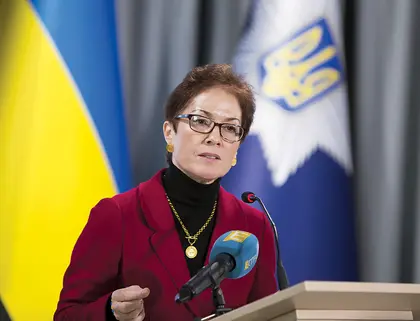
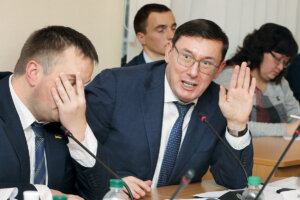

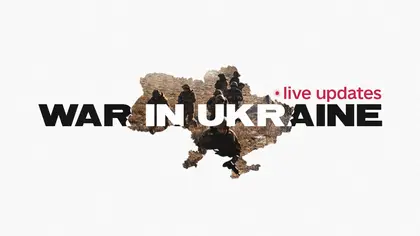
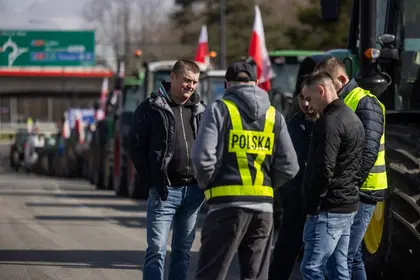
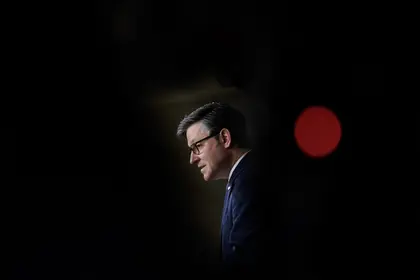
Comments (0)